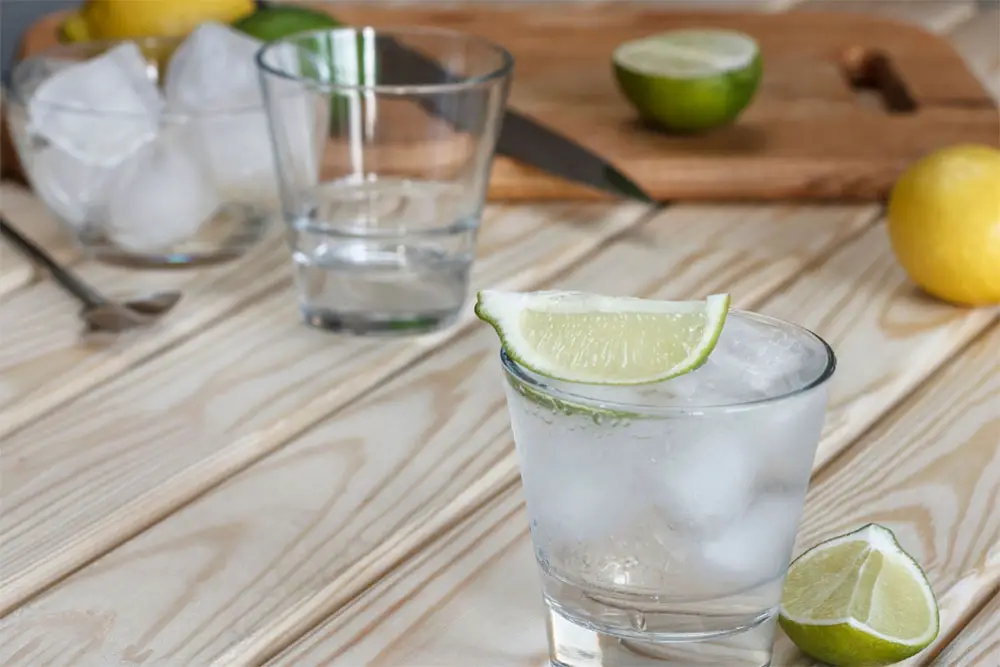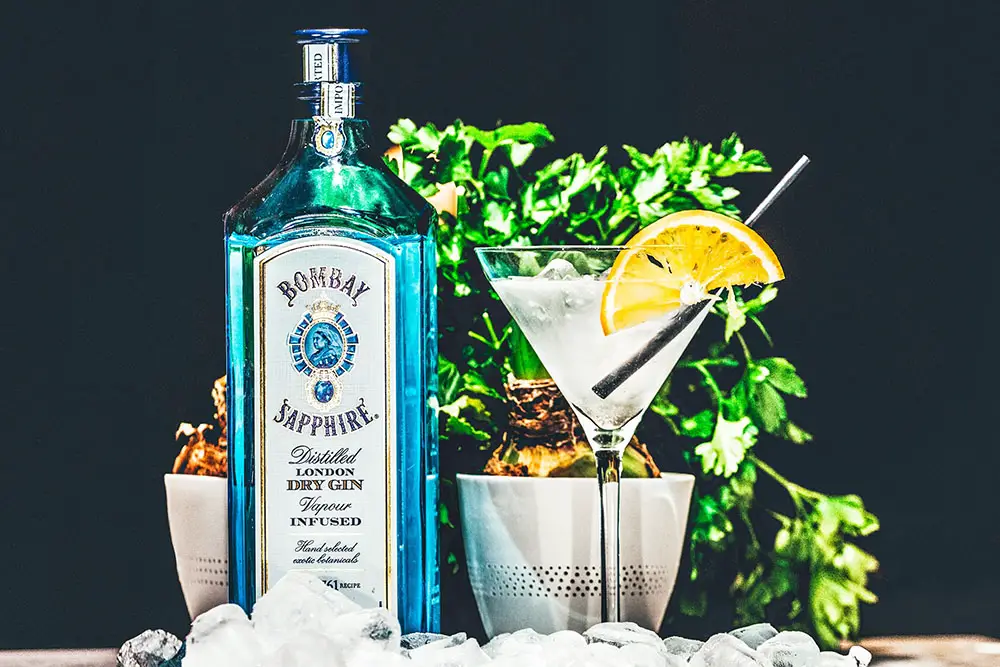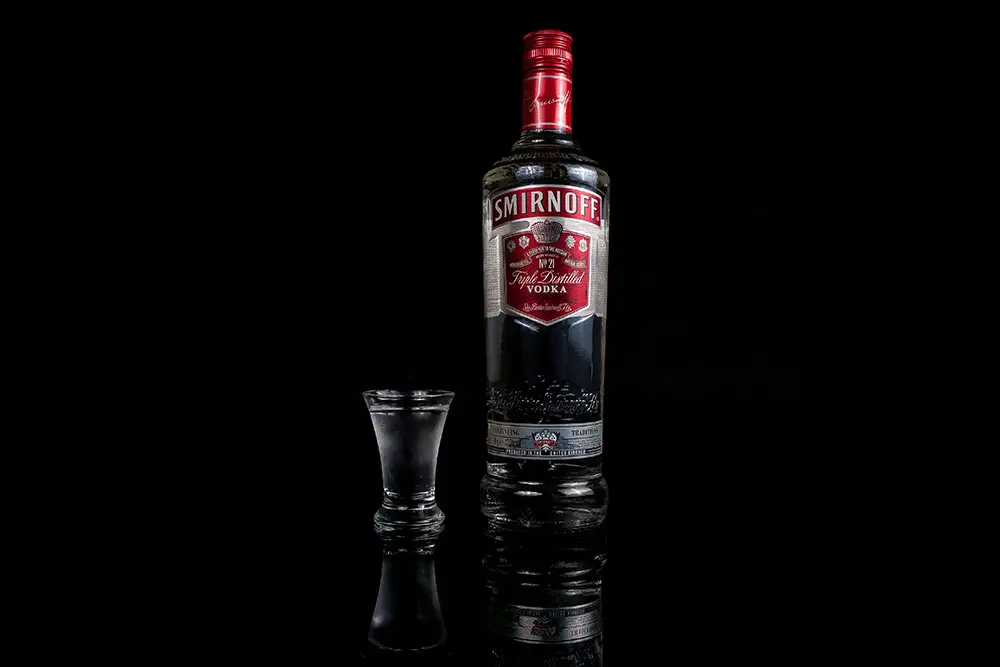Gin and vodka are some of the most popular spirits across the world. The two are distinct in their own way, and can be used in a wide variety of delicious drinks.
Gin is typically associated with pine and herbal notes as it derives its flavor from juniper berries, while vodka is often described as a tasteless and odorless entity. In other words, it’s a neutral spirit. Despite the difference in taste, gin and vodka share many of the same characteristics.

Shaker & Spoon - We bring the bar to you! It's the perfect home happy hour🍸→ Get Your Drink Box
To find out more, keep reading as this guide will take a look at some of the main similarities and differences between the two spirits, as well as a few of the frequently asked questions.
1. Vodka Is Designed To Be Enjoyed On Its own, Gin Isn’t
A large number of people store their vodka in the freezer and it’s somewhat understandable for those who appreciate an ice-cold drink. What’s more, vodka freezes at -27℃, so there’s no risk of that happening in a typical household freezer.
However, storing your vodka in the freezer may not be the best idea if you want to experience the drink’s full bouquet of flavors when you drink it. At the other end of the scale, a vodka served at room temperature may also be too warm to enjoy the full flavor profile of the spirit.
According to Francois Thibault, the creator of popular, high-end vodka brand Grey Goose, the ideal temperature for his product is between 0 and 4℃. This is a slight dilution with fresh ice in a mixing glass.
Vodka is a drink to be enjoyed neat, however, it’s often mixed with other drinks such as lemonade or tonic water to make it easier and smoother to consume, especially among younger people.
Gin, on the other hand, has been created to be mixed and enjoyed with other drinks. As the flavorful botanicals come to life in your chosen spirit/mixer combination or cocktail, they’ll add considerable complexity and a rich taste to your drink. This explains why so many of the old classic beverages call for gin, not vodka.
2. Gin Is Pretty Much Flavored Vodka
You’re not wrong if you think gin is essentially a flavored variation of vodka. Both spirits can be made out of anything, but common bases include wheat, corn, grapes, rye and sugar beets. Irrespective of the primary ingredient, it’s fermented first of all, and then distilled.
This process occurs a number of times so that as much flavor as possible is removed. Following this, water is then added to reduce the spirit down to roughly 40% alcohol by volume (ABV). For gin-based drinks, this is where the beverage is then mixed with juniper, spices and herbs.

At the most basic level, gin is essentially a neutral spirit flavored with juniper berries. Vodka is also a neutral spirit, so in theory, it’s pretty easy to see why many people consider gin just a flavored variation of vodka.
Some of the most popular botanicals for gin include a tasty citrus ingredient such as lemon or orange peel. In addition to these, gin is also enhanced by a mixture of other spices. Take for example, nutmeg, cinnamon, star anise, and coriander.
The incredibly diverse variation in taste among gin-based drinks is mainly caused by the unique combination of botanical ingredients used throughout the distillation process. This is also what differentiates the spirit from vodka.
3. Both Used For Medicinal Purposes
As is the case with most high-alcoholic spirits, gin and vodka were once used as an effective medicine to treat different kinds of diseases before the introduction of more educated, western practices.
Gin was primarily used in the middle ages as a form of herbal medicine. The berries used in the production of gin can help with a number of different ailments, including heart disease, infection, and even kidney and liver disease. It was also believed that gin could be used as a preventive “medicine” against the plague.
Vodka, on the other hand, can help prevent health issues such as strokes, blood clots, and other heart diseases by increasing blood flow and circulation around the body. Furthermore, it can also help to lower cholesterol levels, and if you’re on a strict diet, vodka is a great low-calorie alcohol when mixed with the right drinks.
4. Gin Originates From Holland, Not England
If you ask a large group of gin drinkers about the spirit’s origin, it’s safe to assume that the vast majority of them will associate the drink with England. However, this is ultimately wrong, with recordings of Holland producing the spirit as early as the 16th century.
Furthermore, the term “dutch courage” may even stem from soldiers drinking gin prior to entering battle to take the edge off their fear and encourage a calm state of mind.
In the 1600s, the Dutch King boycotted imports of brandy and as a result, Genever’s standing throughout England rose considerably. Furthermore, in 1690, distilling was officially legalized, and this led to an extensive production of a juniper-based spirit we’re all now familiar with as gin.
What truly makes gin as great as it is today, can be traced back to 1830. This is when Aeneas Coffrey designed the improved column still which provides a more efficient system of distillation.
In terms of Dry Gin, this was the first variation of the spirit to be created in the city of London. This explains why the style of gin is still referred to by most people as London Dry.
5. The Vodka Belt
Unbeknown to most people, there is a place that stretches from the Baltics all the way to Siberia called the “Vodka Belt”. This term refers to the Slavic countries of central and eastern Europe – the historical homeland of vodka.
While Russia is widely regarded as home of the popular spirit, the Vodka Belt also includes Latvia, Belarus, Estonia, Lithuania, Poland, the Ukraine, and the majority of the Scandinavian countries. Interestingly, the European countries of the Vodka Belt produce in excess of 70% of the EU’s vodka.

It’s worth noting that many of the countries belonging to the Vodka Belt actually prefer other alcoholic drinks such as beer to vodka. In fact, some consume nearly twice as much beer as the popular spirit.
Top Gin Brands
The good news for gin lovers is that there are several brands of gin that are among the most popular alcoholic beverages in the world. Therefore, you’ll have no problem getting your hands on them. Listed below are 8 of the most popular.
- Gordon’s
- Tanqueray
- Hendrick’s
- Bombay Sapphire
- Beefeater
- Seagram’s
- Sipsmith
- Larios
Top Vodka Brands
There are also a significant number of vodka brands among some of the best-selling alcoholic beverages in the world. Listed below are 8 of the most popular.
- Smirnoff
- Grey Goose
- Absolut
- Soplica
- Khortytsa
- Zubrowka
- Nemiroff
- Magic Moments
Frequently Asked Questions
Is Vodka Or Gin Healthier?
Both spirits are reasonably healthy when consumed in moderation. The clearer types of alcohol such as gin, vodka and whiskey are all pretty easy on the body, and at the same time, pretty easy on the calories.
A typical single-measure serving of vodka only contains 97 calories and zero carbs, while a single-measure serving of gin has a similar caloric range of 110 calories and zero carbs.
Is Gin Or Vodka Better For Cocktails?
Both spirits are great for using in cocktails. Vodka is the preferred spirit for popular drinks such as a Cosmopolitan, Bloody Mary, and Espresso Martini, while gin is famously used in a Bramble, Negroni, and of course the gin and tonic.
What Alcohol Is Easiest On The Liver?
So long as you drink alcohol in moderation, your liver should be fine whatever your preferred choice of drink is. However, if you want to be super careful, in 2018, Bellion Vodka became the first commercially-made alcohol with NTX technology. In other words, a blend of ingredients that are clinically proven to be easier on the liver.
